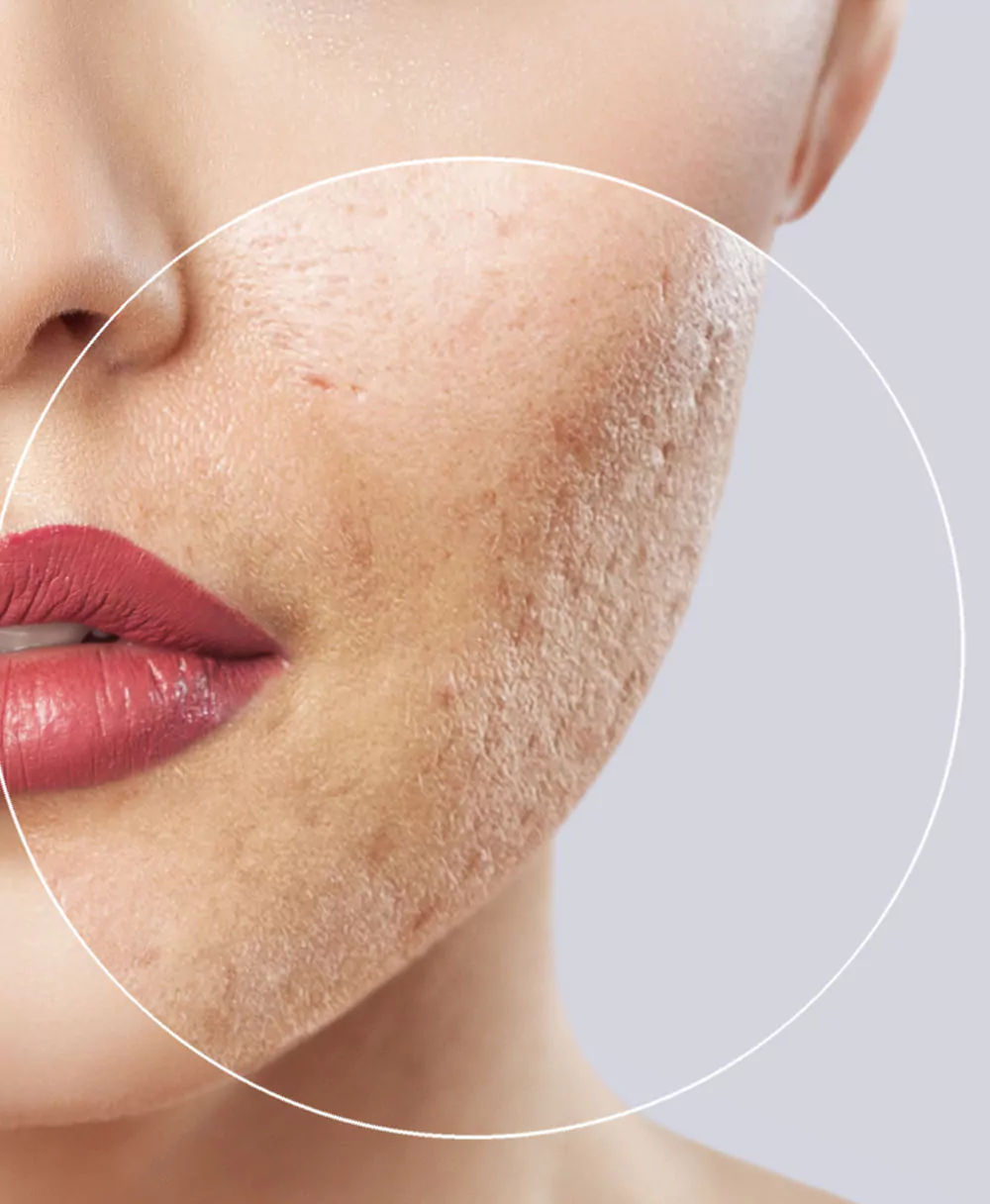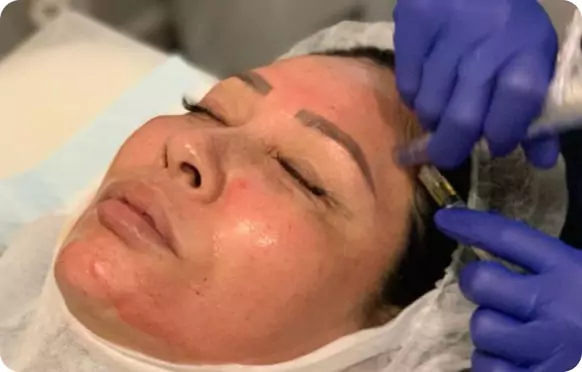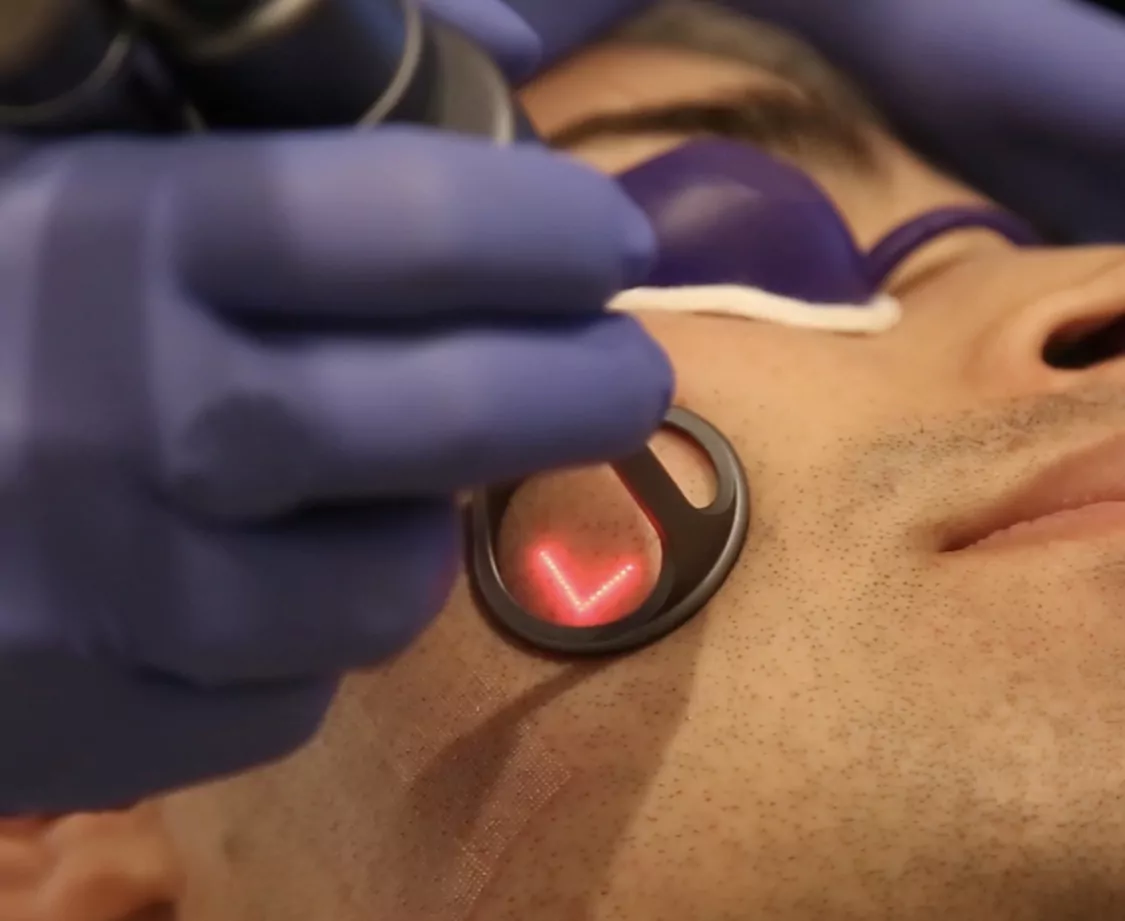Acne scarring can seriously affect someone’s confidence as they can be quite visible and permanent if left untreated. The most common acne scars are box car scars, ice pick scars and rolling atrophic scars. CO2 fractional laser can be considered the gold standard for tackling deep and shallow acne scars with a lighter skin tone. For people with a darker skin tone, we recommend PRP skin treatment.
How many: 3 - 5
Procedure time: 30 mins - 1 hour
How many: 3 - 5
Procedure time: 30 - 45 mins
Disclaimer: We are all unique. This means that treatment plans, the results, down time and recovery following treatment will vary from patient to patient. The information presented on this website should be used as a guide only.
Active pimples are frustrating, but the scars that they leave behind can be even more maddening. If you manage to get your acne under control, you may wish that you could eliminate the scars and dark spots that the lesions leave behind.
Have you ever had an acne scar that goes away after a while? That’s generally not acne scarring, but usually It’s post-inflammatory hyperpigmentation.
When your skin becomes wounded or inflamed, it can produce extra melanin as it heals. Melanin can make your skin darker at the site of the acne spot. Even after the lesion has healed, the dark spot may remain. It might be dark pink, purplish or brown, depending on your skin tone.
These hyperpigmentation marks usually go away on their own. However, they may not disappear completely for up to six months.
Acne scarring is more severe. True scars can develop when dermis, the thick layer of skin below the epidermis, is damaged. To heal the wound, the body may create more collagen, which is a protein that grows naturally in the body. The collagen fibers have a different texture than the rest of your skin, and they may form a scar.
There are a few types of acne scars:
The appearance of the scars varies depending on the location and type of acne. The various types can also be treated differently.

With acne scar treatments, such as ice pick scars, the objective is to restore scars in the dermis. The appropriate solution for you depends on the different types of acne scars you have, your skin tone, and the degree of scar tissue damage.
Acne scar treatment options include laser treatment and skin resurfacing. At Hair and Skin Science, we can safely treat acne on all skin types, regardless of skin texture. Our therapy solutions offer a non-invasive alternative to a subcision, and they aim to improve your appearance and self-esteem.

Platelet-rich plasma (PRP) is an effective scarring acne treatment that alleviates active acne as well. With this method, we inject platelets containing growth factors into your skin to boost new collagen and elastin production. The platelets also increase blood flow, which helps restore your skin’s dermis and appearance, alleviating acne scarring.

When it comes to laser treatments and laser resurfacing, carbon dioxide fractional laser is among the safest and most effective. With this therapy, we reduce deep and shallow scars, while we thicken and tighten your skin. This option is suitable if you have a lighter skin tone with an irregular texture.
Our registered nurses perform over 100,000 treatments every year. Visit one of our clinics UK wide. Conveniently located in London.